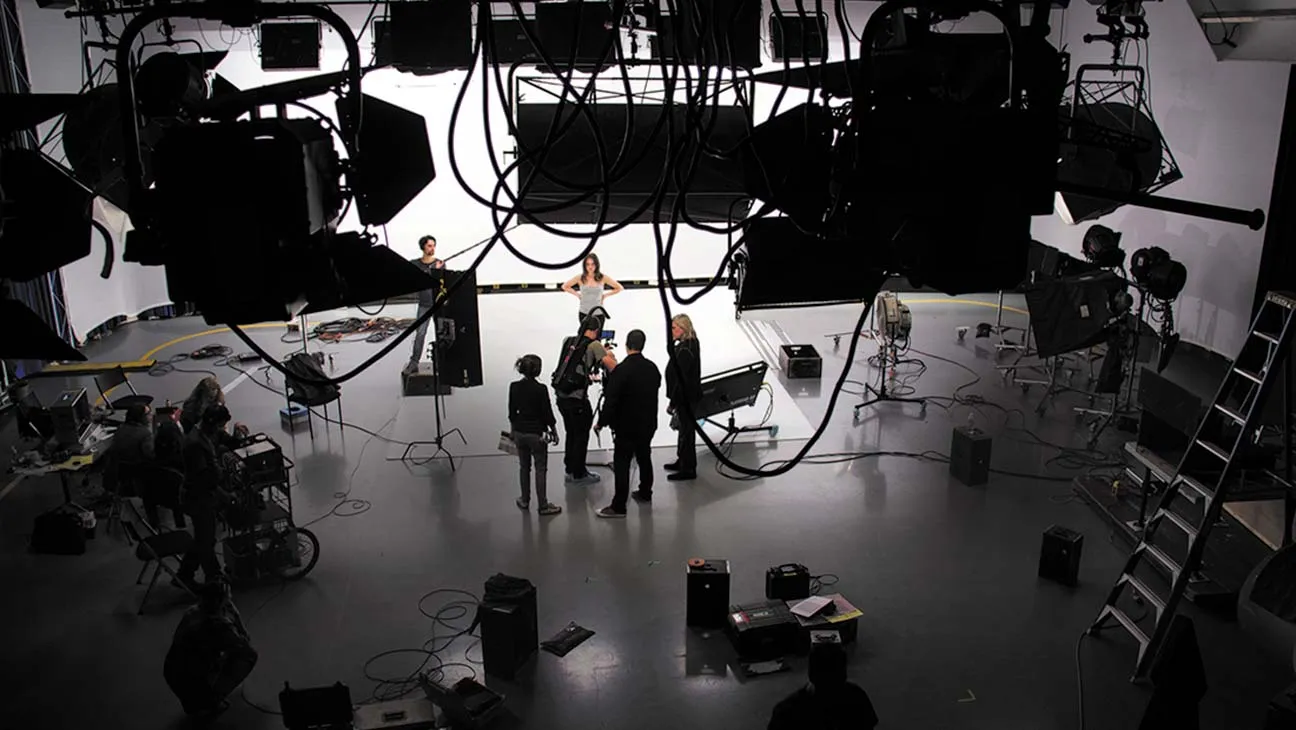
Filmmaking 101: Camera Shot Types
September 28, 2023
Top 10 Benefits of Using Salesforce
October 22, 2023
With the advent of technology and changing times, we are no longer restricted to studying within the four walls of institutions. One can choose any online film school or a traditional film school based on their preferences and what fits more of their requirements.
In this blog, we discuss the pros and cons of online film school vs. traditional film school, what’s better for you, and how to choose the best film academy online courses or offline ones.
Online Film School:
Pros:
- Flexibility: One of the biggest advantages of online film schools is the flexibility they offer. You can learn at your own pace, which is ideal for those with busy schedules, jobs, or family commitments. You can access course materials and lectures anytime, anywhere.
- Cost-Efficiency: Film academy online courses are often more affordable than traditional ones. You save on commuting, accommodation, and other expenses related to attending a physical institution. Moreover, there are a plethora of free or low-cost certificates in filmmaking, making it accessible to a wider range of students.
- Global Networking: Online courses connect you to students and instructors from around the world, providing a diverse and international perspective. This can be particularly beneficial in the film industry, which often involves collaboration with people from different backgrounds and cultures.
- Up-to-date Content: Online film schools can quickly update their course content to keep up with the ever-evolving film industry. This ensures that students receive the latest information and techniques.
Cons:
- Limited Practical Experience: The lack of hands-on experience can be a significant drawback. Film is a practical art, and online courses might not provide the same level of hands-on experience as traditional certificate in filmmaking
- Less Interaction: Film academy online courses may lack the face-to-face interaction and networking opportunities that traditional film schools provide. Building relationships and connections in the film industry can be challenging in an online environment.
- Self-Motivation Required: Online learning requires a high degree of self-discipline and motivation. Without the structure of regular classes and in-person accountability, some students may struggle to stay on track.
Also Check: Tips To Choose The Best Sports Management Courses In India
Traditional Film School:
Pros:
- Hands-On Experience: Traditional film schools typically offer a more immersive experience, with access to state-of-the-art equipment, studios, and practical workshops. This hands-on experience can be invaluable for aspiring filmmakers looking for certificate in filmmaking.
- Networking Opportunities: Physical attendance at a film school provides ample networking opportunities. You can connect with professors, peers, and industry professionals, which can be instrumental in launching your career.
- Structured Learning: Traditional film schools offer a structured curriculum with regular classes and assignments. This can help students stay on track and build a strong foundation in filmmaking.
- Cinematic Community: Film schools create a sense of community among students who share the same passion for the art of filmmaking. This can lead to collaborations and lifelong friendships.
Cons:
- High Costs: Traditional film schools can be expensive for certificate in filmmaking. Tuition, accommodation, and living expenses can add up quickly, leaving students with substantial debt after graduation.
- Rigidity: The fixed schedule and location requirements of traditional film schools may not suit everyone. It can be challenging for those with full-time jobs or family commitments.
- Outdated Curriculum: Some traditional film schools may struggle to keep up with industry trends, resulting in a curriculum that is not as current as it should be.
How to Choose the Best Film Academy:
When deciding between online film school and traditional film school for certificate in filmmaking, consider your individual circumstances, career goals, and learning preferences.
Here are some key factors to keep in mind:
- Career Goals: If you aspire to work in Hollywood or other major film hubs, a traditional film school may provide better networking opportunities. If you are more interested in independent filmmaking or already have industry connections, film academy online courses may suffice.
- Budget: Assess your financial situation. If you can afford the costs of a traditional film school and believe the investment is worth it, then it might be the right choice. However, if you need a more budget-friendly option, online film schools could be your best bet.
- Learning Style: Consider how you learn best. If you thrive in a structured environment with hands-on experience, a traditional school may be better for you. If you are self-motivated and appreciate flexibility, online courses are a viable option.
- Course Content: Research the curriculum and faculty at both online and traditional film schools. Look for schools that offer courses aligned with your specific interests and goals.
Choose What Fits Your Goals The Best
In conclusion, whether you choose a film academy online courses or a traditional film school depends on your unique circumstances and what aligns with your career aspirations. There is no one-size-fits-all answer, and both options have their merits. The important thing is to thoroughly research your choices, weigh the pros and cons, and make an informed decision that suits your goals and lifestyle.
For those interested in an online film school, consider Whistling Woods International Virtual Academy’s advanced filmmaking programme. This one-year programme, offers over 60 hours of learning through video lectures, live sessions, offline workshops, and extensive interactions with industry legends.
It’s an excellent option for those who want to embark on a filmmaking journey from the comfort of their own space and receive an Advanced Certificate from Whistling Woods International upon completion.




